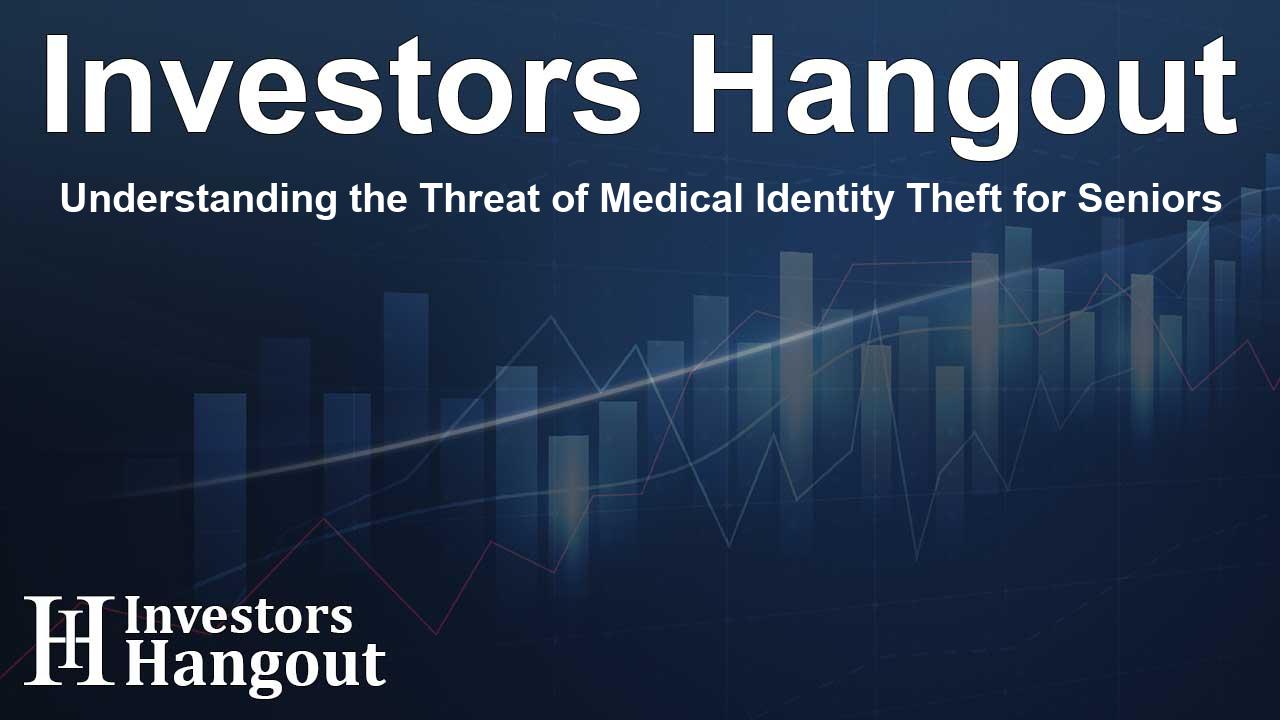Understanding the Threat of Medical Identity Theft for Seniors

Understanding Medical Identity Theft
The New York StateWide Senior Action Council has identified a significant issue facing the elderly: medical identity theft. This type of fraud targets seniors, using their personal health information to claim benefits for services never rendered. It poses a serious threat not only to the finances of the elderly but also to their health.
What is Medical Identity Theft?
Medical identity theft occurs when an individual fraudulently uses another person's health information—such as a Medicare number—to obtain medical services, supplies, or equipment. For many, this can mean a lifetime of complications, as medical records may become corrupted with misinformation such as incorrect diagnoses or wrong treatments. The risk of denied services or inaccurate healthcare increases when someone else’s medical history finds its way into a senior's files.
The Role of the Senior Medicare Patrol
The Senior Medicare Patrol (SMP) program represents a crucial resource for seniors. It aims to empower older adults and caregivers to identify, prevent, and report instances of health care fraud, errors, and abuse. This program operates as a vital shield against the rising tide of fraudulent activity targeting the elderly.
Recognizing Warning Signs
Beware of several warning signs that could indicate medical identity theft:
- Receiving unexpected medical bills for services not provided.
- Insurance claims being denied due to conditions that do not exist.
- Contact from debt collectors regarding medical expenses that do not belong to the individual.
Each of these signs can indicate unauthorized use of personal information, which could result in devastating outcomes for seniors.
Protective Measures to Consider
The SMP recommends specific strategies to help protect against such scams:
- Seniors should keep their Medicare cards secure and only share their Medicare numbers with trusted healthcare providers.
- Be cautious of so-called “free” offers from unknown vendors as these often serve as traps to gain sensitive information.
- Utilize verified suppliers for all medical supplies, avoiding solicitation from unsolicited contacts.
- Regularly review Medicare Summary Notices and Explanation of Benefits for unfamiliar charges or services.
- If suspicious contact occurs or fraud is suspected, immediate reporting is crucial. Seniors can call the SMP Helpline at 800-333-4374 for assistance.
Education plays a critical role in combatting identity theft. Organizations like StateWide offer trained counselors who assist Medicare beneficiaries in navigating the complexities of healthcare fraud.
Supporting Resources for Seniors
StateWide provides invaluable services such as educational presentations, help with questions about Medicare, plan comparisons, and support for understanding patients' rights. These resources are essential for empowering seniors to protect themselves against fraud.
The Financial Impact of Medicare Fraud
It's alarming to note that Medicare fraud is estimated to cost taxpayers upwards of $60 billion annually. To address this growing concern, the StateWide Senior Action Council implemented its Fraud of the Month initiative starting in 2022. By spotlighting different scams each month, the program aims to educate seniors about the various tactics used by fraudsters.
Frequently Asked Questions
What is the most common type of fraud targeting seniors?
Medical identity theft is among the most prevalent types of fraud affecting seniors, often leading to financial loss and health risks.
How can seniors report suspected medical fraud?
Seniors should contact the NYS Senior Medicare Patrol Helpline at 800-333-4374 to report any suspicious activities or fraudulent practices.
What signs indicate that I may be a victim of medical identity theft?
Receiving unexpected medical bills, insurance claim denials, or contact from debt collectors about unknown medical expenses are key indicators.
What precautions can seniors take to protect themselves?
Seniors should safeguard their Medicare information, avoid sharing it unnecessarily, and regularly monitor their medical records for accuracy.
Are there resources available for seniors to get help with Medicare issues?
Yes, organizations like the StateWide Senior Action Council provide assistance regarding Medicare questions, plan comparisons, and fraud education.
About The Author
Contact Caleb Price privately here. Or send an email with ATTN: Caleb Price as the subject to contact@investorshangout.com.
About Investors Hangout
Investors Hangout is a leading online stock forum for financial discussion and learning, offering a wide range of free tools and resources. It draws in traders of all levels, who exchange market knowledge, investigate trading tactics, and keep an eye on industry developments in real time. Featuring financial articles, stock message boards, quotes, charts, company profiles, and live news updates. Through cooperative learning and a wealth of informational resources, it helps users from novices creating their first portfolios to experts honing their techniques. Join Investors Hangout today: https://investorshangout.com/
The content of this article is based on factual, publicly available information and does not represent legal, financial, or investment advice. Investors Hangout does not offer financial advice, and the author is not a licensed financial advisor. Consult a qualified advisor before making any financial or investment decisions based on this article. This article should not be considered advice to purchase, sell, or hold any securities or other investments. If any of the material provided here is inaccurate, please contact us for corrections.
